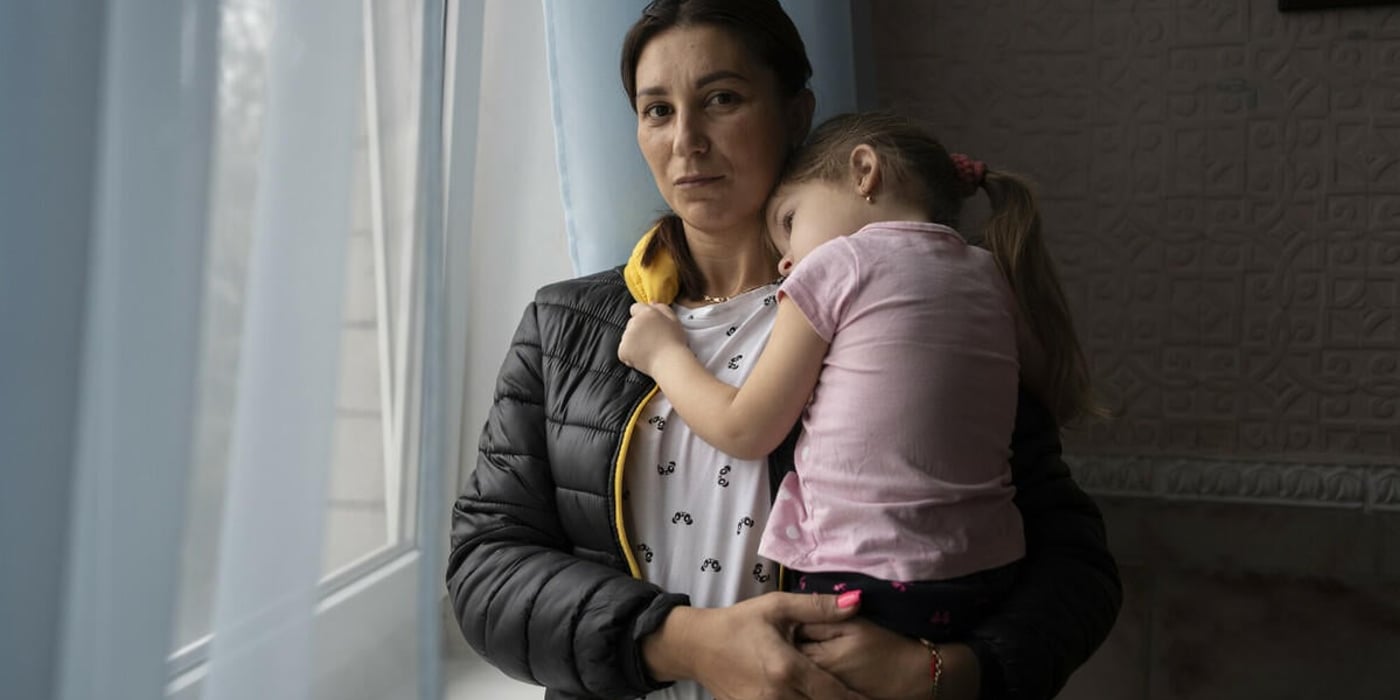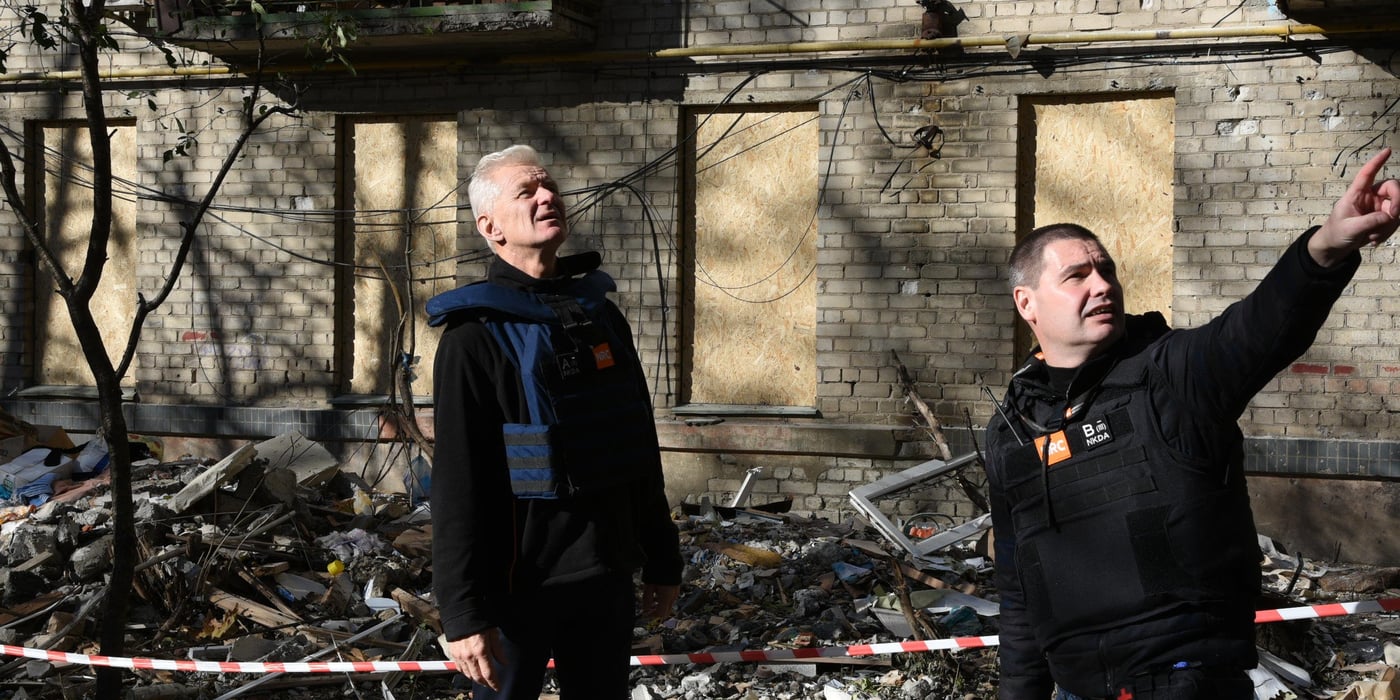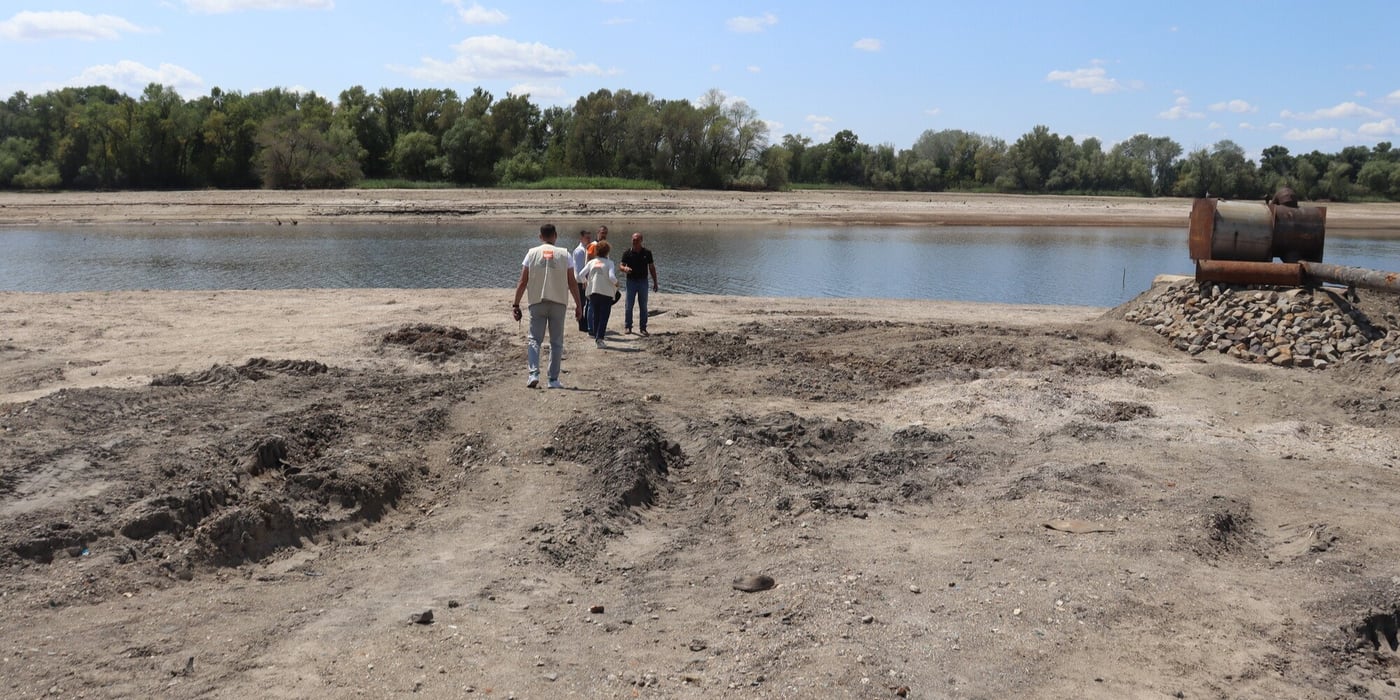Mykola Popov is visually impaired. He’s in his mid-30s, unemployed and lives with his mother in the town of Severodonetsk, in eastern Ukraine.
For years, Popov worked at the local factory that produced pavement slabs. But the factory shut down, and he lost his job. He tried to find another, but since he’s legally blind, there was nothing suitable for him.
Restoring his sight is not an option at the moment. “I have had this visual disability since my childhood,” he explains. “In the past, the doctors could not treat it. Now it is possible, but it is a matter of money.” For the time being, Popov simply can’t afford such medical treatment.
In his youth there were no special courses for blind people, so he couldn’t obtain a higher degree. “I have gotten used to such a life,” he simply says.
Years of conflict and crisis in eastern Ukraine have caused destruction, a poor economic situation and humanitarian needs in the country, significantly worsening the quality of life for Ukrainians. More than a million have been forced to flee the war-torn area to other parts of the country. They have serious problems finding jobs in the towns where they found refuge. They are often not able to provide for themselves or find adequate housing.
A new profession: massage therapy
The Norwegian Refugee Council (NRC) has begun to offer free vocational training for displaced Ukrainians in the area. Popov heard about NRC trainings at the Association for the Blind. He applied, but did not expect that he would ever be accepted. His enrolment came as a big surprise.
He chose a massage therapy course because it does not require good eyesight. In fact, it’s an advantage.
“Blind people have a better tactility,” Popov observes. He’s excelling in the practical sessions and enjoying them immensely. So much so that he’s begun to plan ahead.
A neighbour has already sought help from Popov. “Our town is quite big,” he says. “I might start as a home massage therapist.”
From accounting to massage therapy
Tetiana Chekhushyna has also turned to the massage therapy courses. She fled her village in eastern Ukraine with her infant son Pavlo in 2014. Like many Ukrainians, when she left, she only had a train ticket and a small amount of money for food.
She left behind her bombed village, her husband and her job as an accountant to find safety with her mother in Severodonetsk. She did it for her son.
“Our long-awaited child was born with a brain deficiency,” Chekhushyna explains. “The doctors said that he would never be able to walk and talk. But I did not give up.”
Her biggest challenge is to find treatment for her boy. She sold all her jewellery to buy the next supply of Pavlo’s expensive medications. On top of that, her mother suffered a stroke.
“I cannot have a full-time job,” Chekhushyna says. “I need a flexible schedule to look after my sick son and mother.”
That’s why this vocational training is perfect for her. After hearing from others about the course, she applied for the massage therapy training. When Chekhushyna completes the course, she will receive an official certification in massage therapy. She’s planning to create a space in her flat where she can offer massage services. She also hopes that she will be able to get a job at her friend’s beauty salon.
“I always liked massage, and I am actually making progress in it,” she smiles.
Her newfound profession is not the only area where she’s making progress. Thanks to Chekhushyna’s perseverance, her three-year-old son is now able to walk and talk. She takes him to the centre for children’s rehabilitation as much as she can. With a steady income, she’ll be able to do even more for him.
Opening new doors
Massage therapy is one of many courses available at training centres supported by NRC. Participants can enrol in machinery operation, construction, bricklaying, tailoring and cosmetology. To date, there are 300 participants.
“Our participants are people who want to work. But to find a job, they need new skills,” says Oleksandr Sheludenkov, an NRC staff member. “We offer trainings that best meet the needs of our applicants and that are in high demand.”
The trainings take place in public educational institutions, and all trainees receive official certification upon completion of the courses.
NRC launched this initiative in 2017. It’s a food for training project in three conflict-affected towns in eastern Ukraine. In addition to the free training, trainees also receive monthly financial assistance to buy food. More than half of the participants are internally displaced.
This project is co-funded by the World Food Programme and the Norwegian Ministry of Foreign Affairs.




